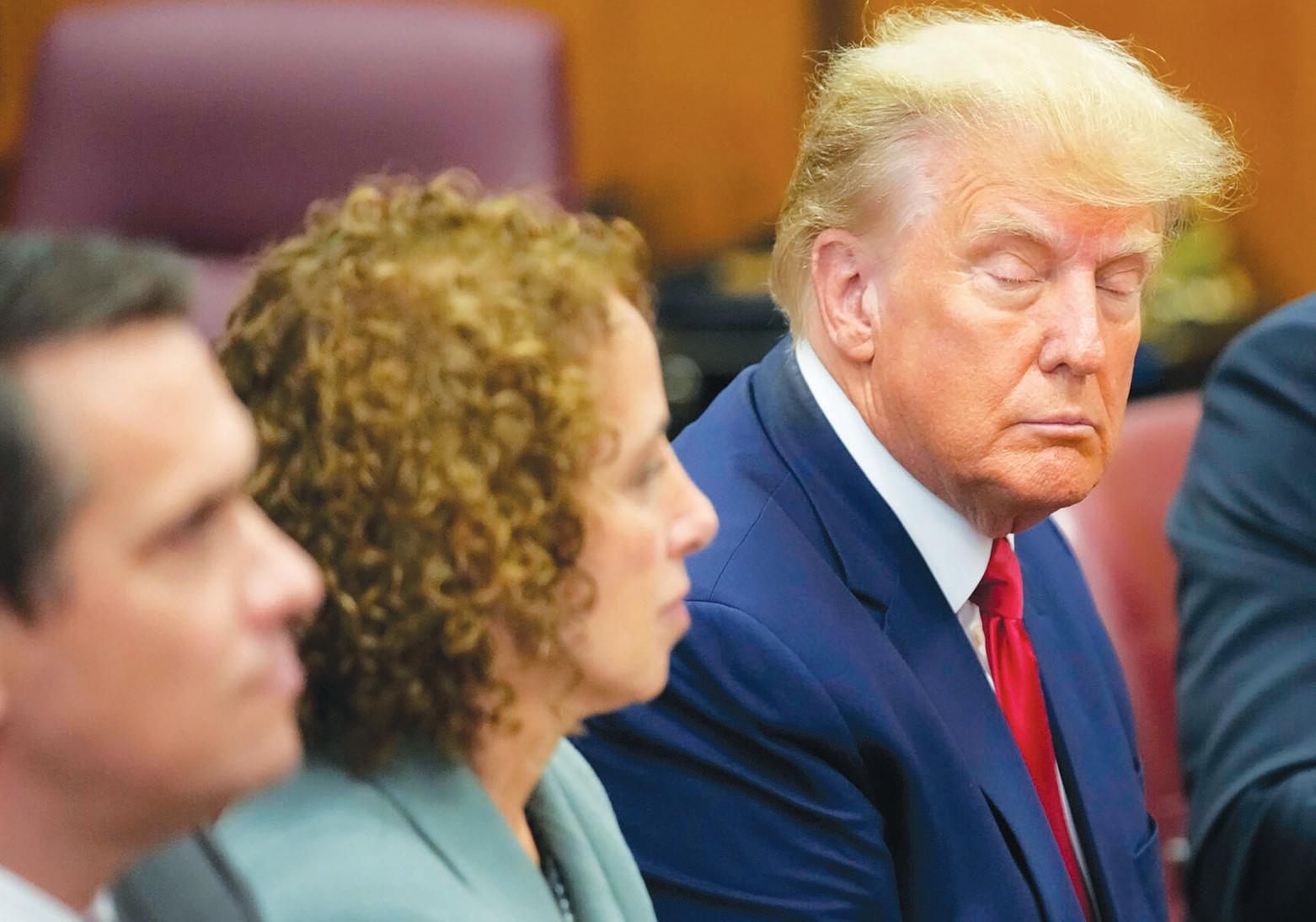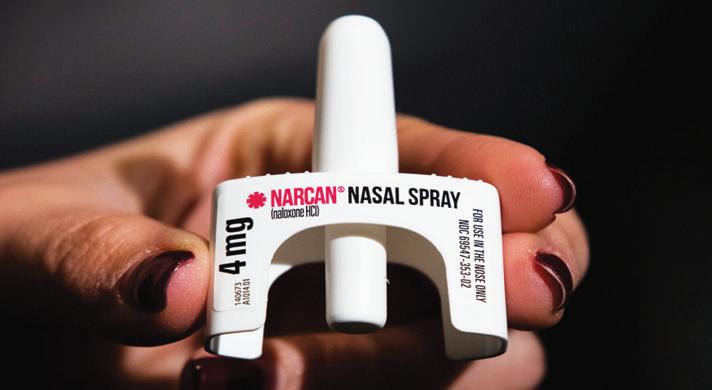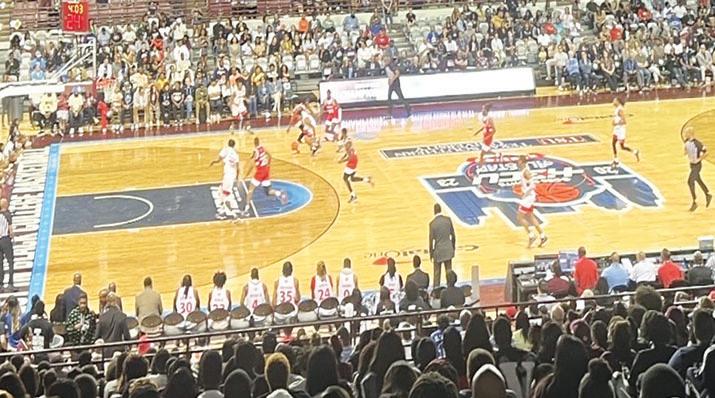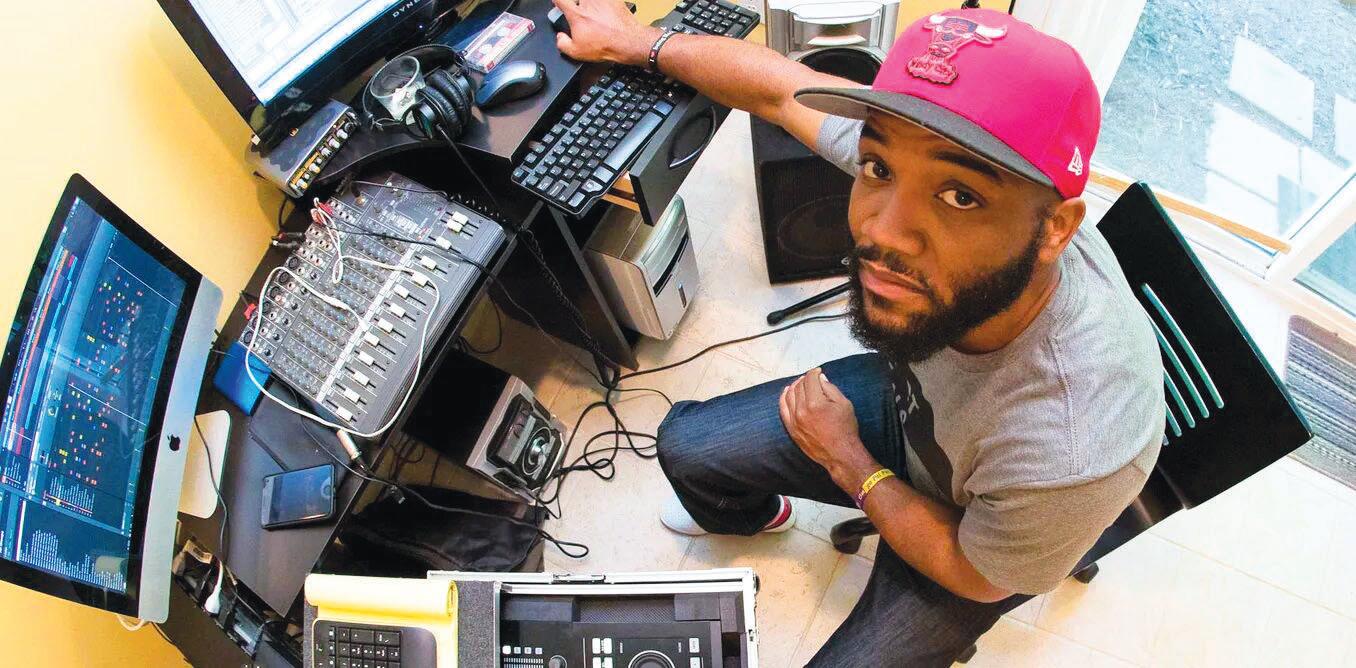
3 minute read
Trump pleads not guilty to 34 charges; admonished by judge
By Michael R. Sisak, Eric Tucker, Jennifer Peltz
Will Weissert Associated Press
A judge has warned former President Donald Trump to refrain from rhetoric that could inflame or cause civil unrest.
Trump, speaking briefly during his arraignment, told the judge he was pleading “not guilty” and was advised of his rights by the judge.
Judge Juan Merchan also warned Trump that he could be removed from the courtroom if he is disruptive, but Trump spoke only a few times to respond to questions.
He’s next due in court in December, but his lawyers asked for him to be excused from attending the hearing in person because of extraordinary security proceedings.
THIS IS A BREAKING NEWS UPDATE.
AP’s earlier story follows below.
Former President
Donald Trump pleaded not guilty Tuesday to 34 felony counts of falsifying business records arising from a hush money payment to a porn actor during his 2016 campaign, according to two law enforcement officials familiar with the matter. The plea came during a history-making arraignment in a lower Manhattan courtroom, with Trump becoming the first former president in U.S. history to face criminal prosecution.
The two officials who confirmed the plea spoke on condition of anonymity to The Associated Press because prosecutors had not yet released the indictment publicly. The arraignment, though procedural in nature,
Issues arose in October when Erika López Prater showed a 14th-century painting depicting the Prophet Muhammad to her students as part of a lesson on Islamic art after warning them beforehand and giving them an opportunity to opt out. She has sued the liberal arts school in St. Paul over Miller’s decision not to renew her contract. While leaders of some local Muslim groups have criticized López Prater, the national office of the Council on American-Islamic Relations disputed claims that her actions were Islamophobic. The group said professors who analyze images of the Prophet Muhammad for academic purposes are not the same as “Islamophobes who show
Holt
Hamline University Fayneese Miller during an interview
Monday, Jan. 23. 2023 in St Paul Minn. The faculty at the Minnesota college is calling for its president such images to cause offense.” Faculty at the school were so upset that they called in a January vote for Miller to resign, objecting to what they considered a violation of academic freedom. But several student groups defended her in a letter to the student newspaper. The letter said Miller has been a consistent supporter of students, and the faculty’s call for her resign betrayed them. After criticism from across the country, Miller ultimately conceded that she mishandled the episode.
Dope, meaning cool

By A.D. Carson Assistant Professor of Hip-Hop, University of Virginia

After I finished my Ph.D. in 2017, several newspaper reporters wrote about the job I’d accepted at the University of Virginia as an assistant professor of hip-hop.
“A.D. Carson just scored, arguably, the dopest job ever,” one journalist wrote.

The writer may not have meant it the way I read it, but the terminology was significant to me. Hip-hop’s early luminaries transformed the word’s original meanings, using it as a synonym for cool. In the 50 years since, it endures as an expression of respect and praise – and illegal substances.
In that context, dope has everything to do with my work.
In the year I graduated from college, one of my best friends was sent to federal prison for possession of crack cocaine with intent to distribute. He served nearly a decade and has been back in prison several times since. But before he went to prison, he helped me finish school by paying off my tuition. In a very real way, dope has as much to do with me finishing my studies and becoming a professor as it does with him serving time in a federal prison.
Academic dope

As the global musical phenomenon turns 50, a hip-hop professor explains what the word ‘dope’ means to him CARSON 5
For my Ph.D. dissertation in Rhetorics, Communications, and Information Design, I wrote a rap album titled “Owning My Masters: The Rhetorics of Rhymes & Revolutions.” A peer-reviewed, mastered version of the album is due out this summer from University of Michigan Press.
Part of my reasoning for writing it that way involved my ideas about dope. I want to









